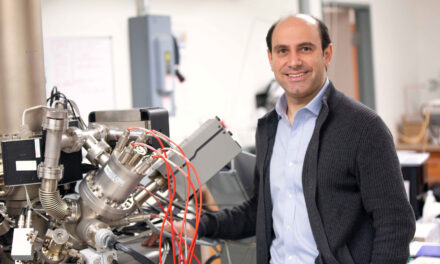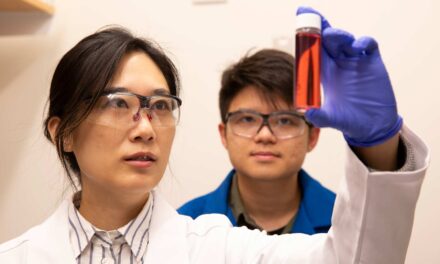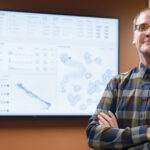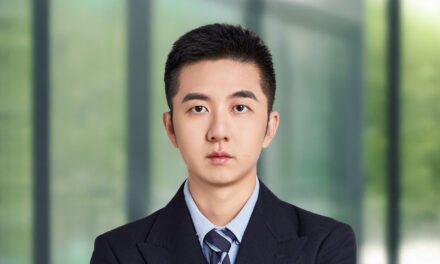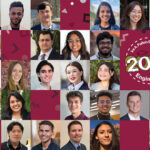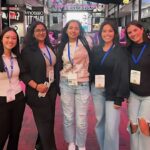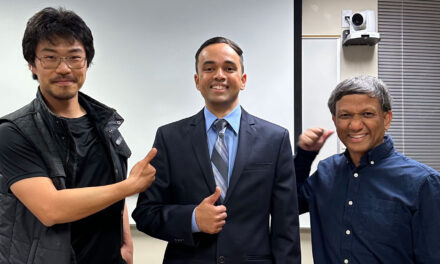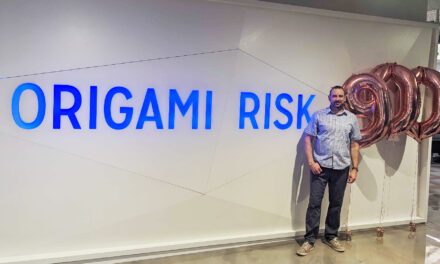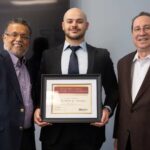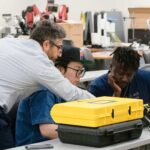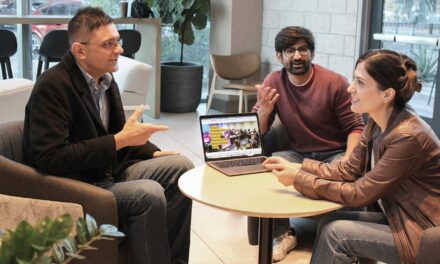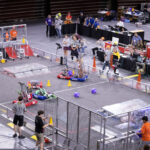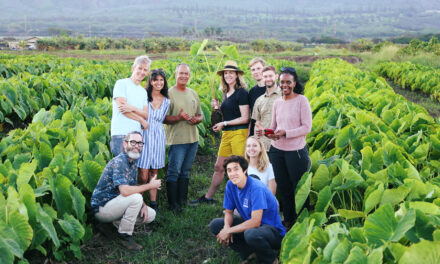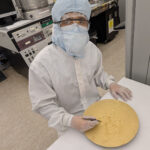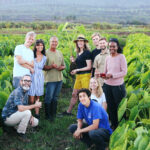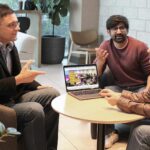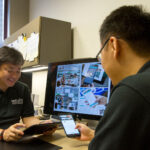
Summer pilot program aims to increase diversity in engineering
Collaboration between Intel Corporation, Arizona State University and Florida Agricultural and Mechanical University offers research experience, mentorship and networking opportunities to encourage diversity in engineering and computer science graduate education, tech careers
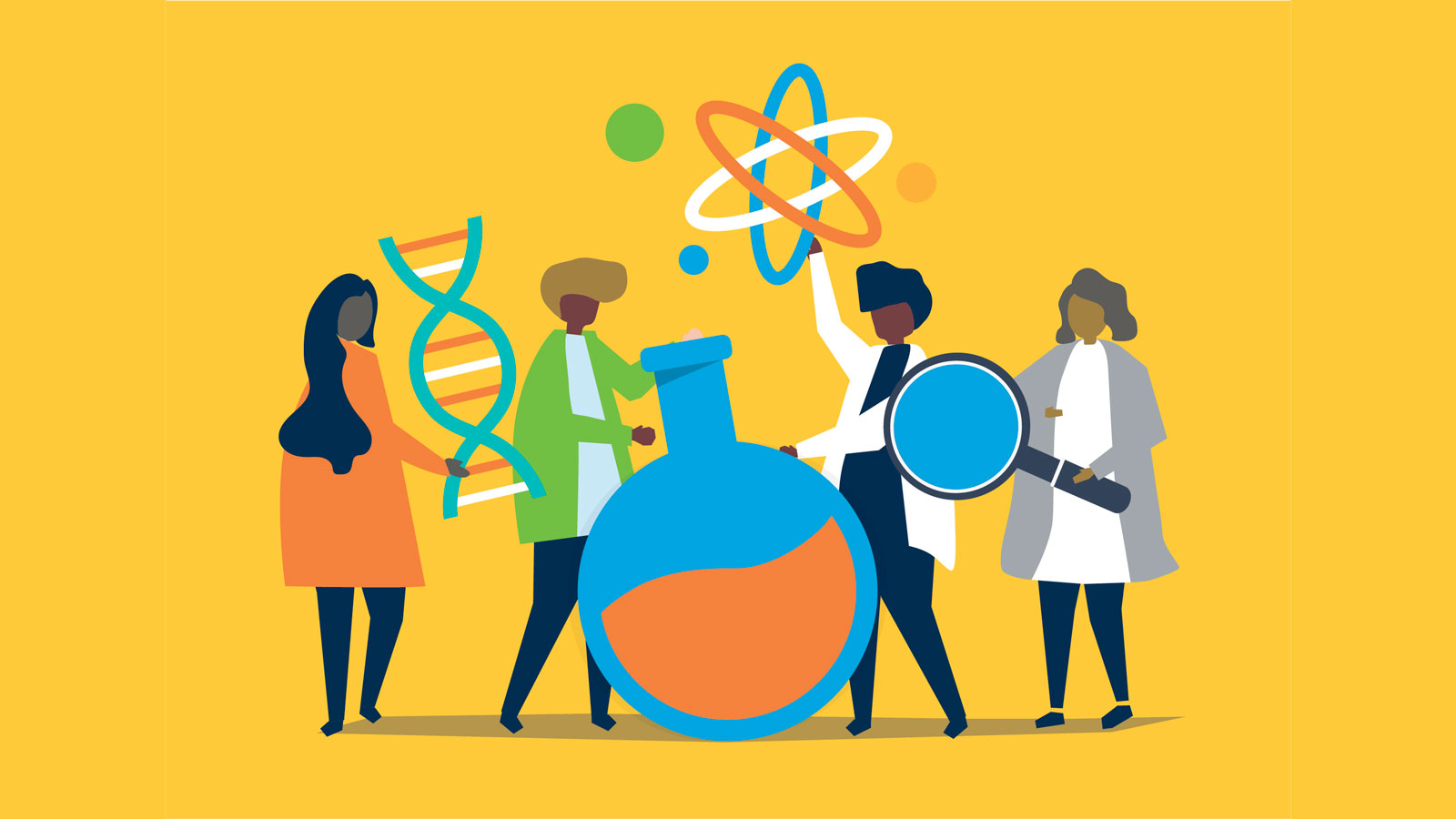
Above: Diversity in engineering is key to the discipline’s ability to effectively serve all aspects of a community’s needs. Intel Corporation partnered with the Ira A. Fulton Schools of Engineering at Arizona State University and Florida Agricultural and Mechanical University in Tallahassee to sponsor students from a historically Black university to gain access to high-impact research and Intel mentors for an eight-week summer engineering pilot program. Graphic courtesy of Shutterstock
If engineers are going to improve the quality of life in the communities they serve, the field must reflect the diversity of those communities.
Black students are particularly underrepresented in engineering, comprising only 4% of U.S. engineering undergraduate students in 2016. According to the National Science Foundation, the number of Black students earning doctoral degrees is rising, especially for students who earned science and engineering bachelor’s degrees from Historically Black Colleges and Universities, or HBCUs — a group of more than 100 higher education institutions which serve primarily Black communities.
Intel Corporation’s HBCU Program aims to provide scholarships and career development opportunities to help increase the number of Black students who graduate with STEM degrees and enter technology careers. To advance a common goal of expanding the pipeline of Black graduate students in STEM, Intel is collaborating with the Ira A. Fulton Schools of Engineering at Arizona State University and Florida Agricultural and Mechanical University, an HBCU in Tallahassee, for the ASU/FAMU Summer Engineering Program pilot.
Intel sponsored seven students from FAMU to participate in an eight-week ASU Summer Research Internship, or SURI, where they conducted research with Fulton Schools faculty members and graduate students. The students also received a combined $5,000 stipend from Intel and the Fulton Schools for the summer.
“Summer engineering research helps students envision themselves with a graduate degree in STEM in an industry or academic career,” says Heather Mattisson, Intel strategy manager for university partnerships, Global Diversity, Inclusion and Social Impact. “It also provides key connections with faculty and exposes students to the rigors of a graduate school experience. Students in the program are gaining additional pathways to a graduate degree with the support of a strong partnership between our organizations.”
The pilot program was conceived last year during the annual Intel HBCU Consortium, at which Intel’s university partners and six HBCUs gather to form new collaborations and share information about Intel’s classroom technology, curriculum and research resources.
“With this partnership in place, students can participate in top research alongside brilliant ASU faculty to really develop their skills, participate in use-inspired research opportunities and gain an understanding of what graduate study might be like,” says Anca Castillo, associate director of engineering student recruitment in the Fulton Schools, who attended the consortium and was instrumental in bringing the partnership together.
The benefits of such a program are far-reaching. Several of the FAMU students say they are now considering advanced degrees after working with ASU faculty members and graduate students and making connections with Intel engineers.
The summer program helped students explore the possibilities of graduate studies at ASU or careers at Intel. But more than that, it solidified just how much both academia and industry as a whole can benefit from increasing diversity through partnerships such as this one.
Summer program increases access to high-impact research
While the COVID-19 pandemic forced SURI to move online, the program forged ahead with the students conducting research remotely.
Some students elected to partner with faculty members working in areas they were already familiar with due to their majors, while others stepped out of their comfort zones to tackle engineering topics in which they had little experience.
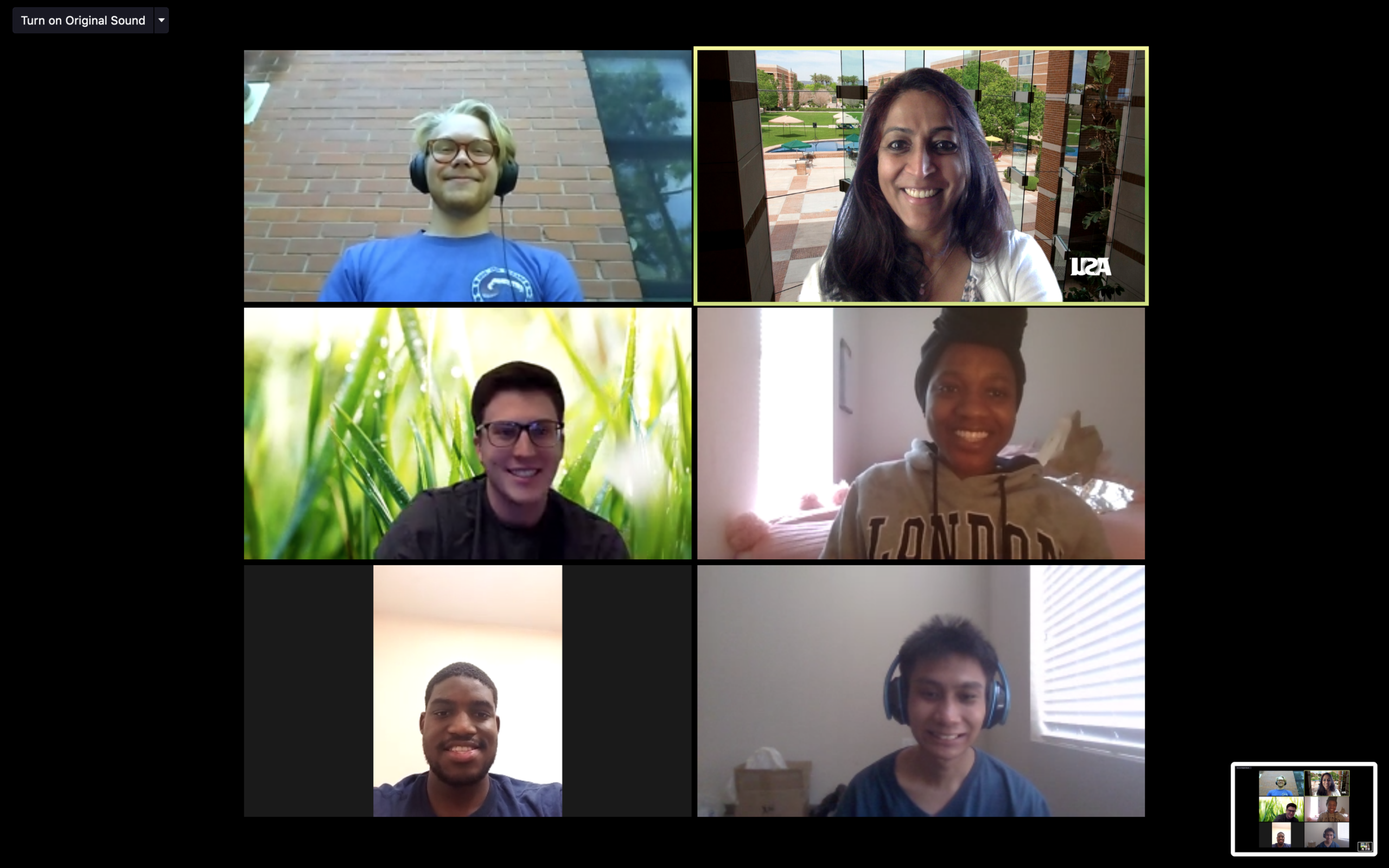
Associate Professor Lalitha Sankar (top right) worked with two FAMU students, Mafuor Tanji (middle right) and Grant Steans (bottom left), to share her research on machine learning and algorithmic fairness issues as part of the ASU/FAMU Summer Engineering Program pilot. They were joined by ASU Summer Research Internship program participant Nathan Stromberg (top left) and Sankar’s doctoral student Tyler Sypherd (middle left) and new doctoral student John Cava (bottom right). Image courtesy of Lalitha Sankar
Lalitha Sankar, a Fulton Schools associate professor of electrical engineering, worked with FAMU students Grant Steans and Mafuor Tanji on artificial intelligence, machine learning and decision-making algorithms, particularly in ways that promote fairness and social good. As a woman of color in engineering, she has firsthand experiences with biases in engineering and mathematical sciences that will require diversity to overcome.
“As technology gets applied more and more to human decision-making, it is crucial to make sure that the technology we design is inclusive and designed without bias,” Sankar says. “This, in itself, will benefit from diversity among those designing these tools.”
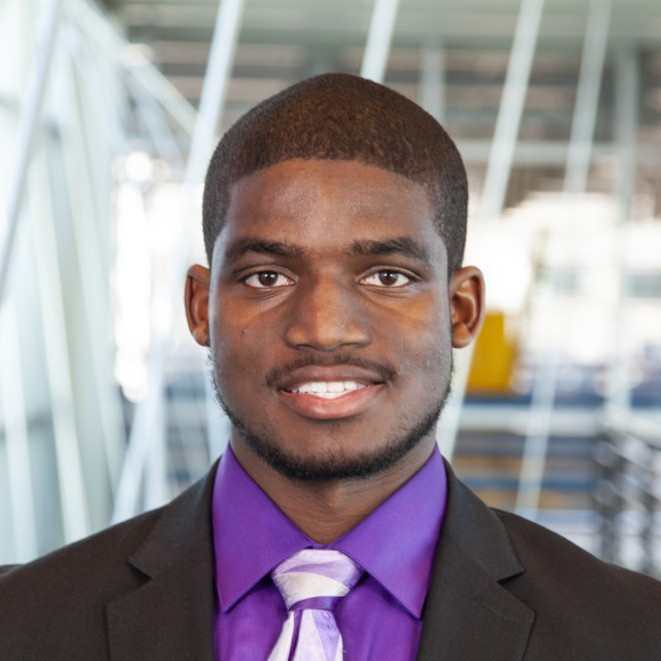
Grant Steans
Grant Steans is already a graduate student studying electrical engineering at FAMU. During his last year as a computer engineering undergrad, he discovered an interest in machine learning, which sparked his decision to continue his studies and conduct research.
“I chose to work with Dr. Sankar this summer because of her theoretical knowledge of machine learning,” Steans says. “Her incorporation of linear algebra to teach things like regression, optimization and the bias/variance trade-off is something I had not experienced in such a detailed manner. She also introduced me to problems that required me to derive different forms of the linear regression algorithm to support my results.”
Steans came away from the experience with a new perspective on his passion and its applications. Before completing the eight-week program, he had already begun to engage his new machine learning skills as a data analyst at a local nonprofit organization in Tallahassee, We Are All We Need. With a goal of ending youth homelessness in Florida, Steans is using the new data science he learned to create baselines and models for trends in arrests, truancy, recidivism, poverty and other factors to present to city commissioners, mayors and police chiefs to make a difference in the community through social and emotional services and other programs.
“This experience taught me that certain skills that I hold as a researcher map to multiple industries, even though those industries aren’t heavily technical,” Steans says, adding that he shifted his plans for his thesis to align his interests in machine learning and social issues.
“When Grant told me that I had opened this door to him to bring technology to social justice, it just made my hour, day and week,” Sankar says.
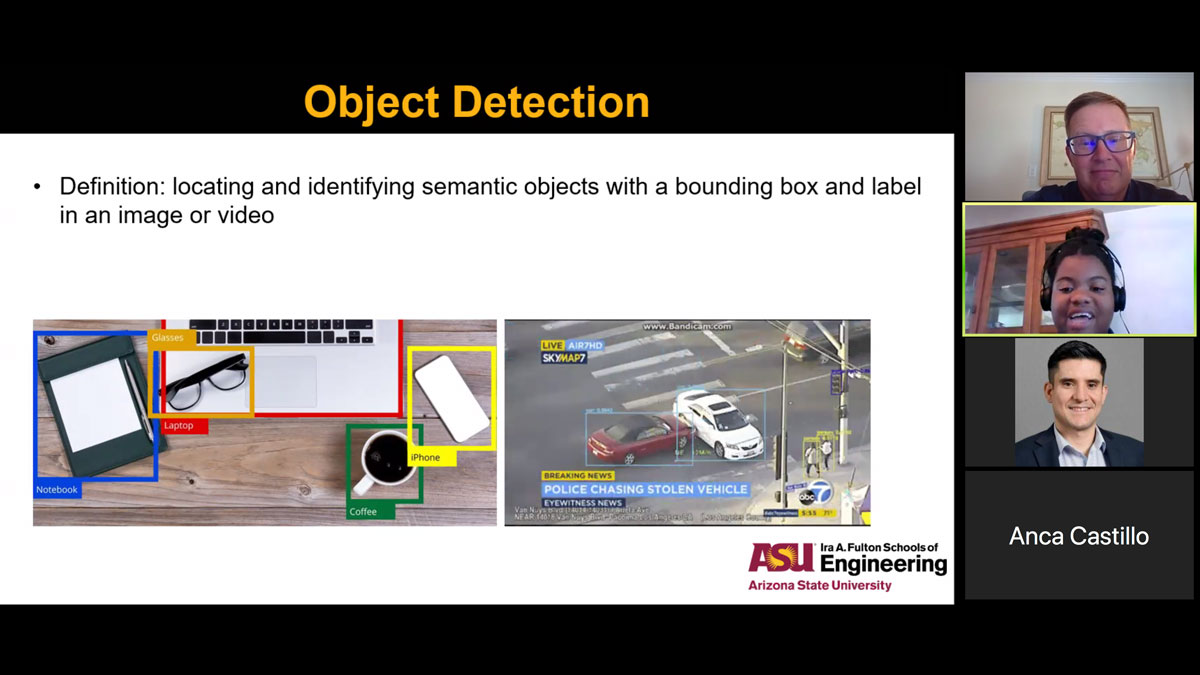
FAMU electrical engineering major Iyonda Lewis uses Zoom to present what she learned about object detection and “Enhancing the wisdom of the crowd” from ASU Assistant Professor Adolfo R. Escobedo. Her summer mentor Todd Younkin, science technical leader of Intel Labs Corporate University Research, and Anca Castillo, associate director of engineering student recruitment in the Fulton Schools, also joined the call.
Adolfo R. Escobedo, a Fulton Schools assistant professor of industrial engineering, says it is important to increase access to research experiences for underrepresented students. Escobedo himself did not conduct research until graduate school because he didn’t know the opportunities existed.
“Had I engaged in research, I believe I would have enjoyed it, which could have further helped me stay motivated in school,” Escobedo says. “Underrepresented students bring their own unique perspectives and experiences that would bring much needed change in academia and beyond.”
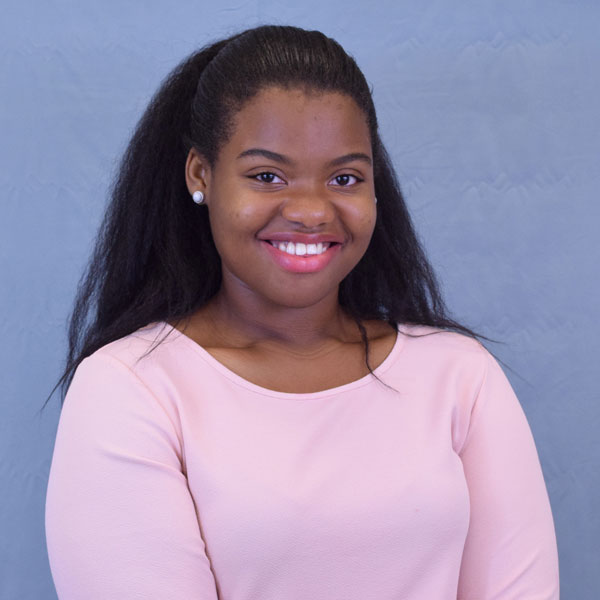
Iyonda Lewis
Escobedo worked with four FAMU students — electrical engineering majors Iyonda Lewis and Alex Ndekeng, computer science major Pierre Cireus and industrial engineering major Christina Anderson.
Cireus and Lewis worked with Escobedo on learning about “Enhancing the wisdom of the crowd” in two different contexts and how diversity of crowds is important for achieving accurate outcomes. The students developed projects that use crowdsourced data to train computer programs to help budget vacations and to identify objects in images.
Ndekeng worked on understanding technologies for “Power System Planning against Rising Temperatures” and Anderson worked on “Optimization Models for Sustainable Logistics.”
Lewis, who will be a third-year electrical engineering student at FAMU in the fall, worked closely with Yeawon Yoo, one of Escobedo’s industrial engineering doctoral students.
“I got to talk to Yeawon about the ins and outs of graduate school, and how impactful study habits and preparation are at the graduate level,” Lewis says. “She not only encouraged my questions about our topic, but also promoted my improvement and growth, as research can be utilized to contribute knowledge, develop and improve processes.”
Reading research journal papers, learning and practicing new concepts related to object detection and figuring out how to solve engineering problems alongside other students in other majors was a valuable experience for Lewis that changed her outlook about advanced degrees.
“I had a spark about grad school,” Lewis says. “This program made me much more interested than before.”
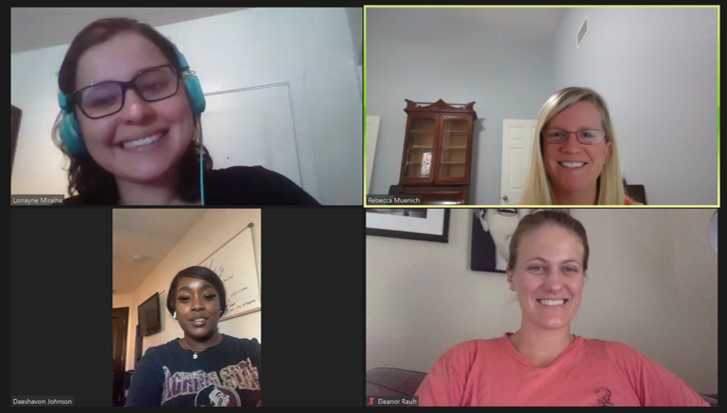
ASU Assistant Professor Rebecca Muenich (top right) and her graduate students Lorrayne Miralha (top left) and Eleanor Rauh (bottom right) meet with FAMU biomedical engineering major Daeshavon Johnson (bottom left) as part of the ASU/FAMU Summer Engineering Program pilot. Together they merged interest areas for Johnson to work on a project involving the connection of agriculture to biodiversity and biotechnology. Photo courtesy of Rebecca Muenich
Rebecca Muenich, a Fulton Schools assistant professor of environmental engineering, worked with FAMU biomedical engineering major Daeshavon Johnson. Despite their completely different focus areas — watershed modeling in agriculture for Muenich and prosthetic development for Johnson — they found common ground in how biomedical engineering could be applied to agriculture through the study of how biodiversity relates to biotechnology through a case study of the Atlantic Forest in Brazil.
“Having one-on-one time with a faculty member who doesn’t control your degree or grade, I think gives students an opportunity to be more open and to expand their skills,” Muenich says. “I hope it also gives them a chance to work on their own science, which I think can help build confidence.”
Faculty members say they were also honored to be a part of a program aimed at increasing access to engineering research for Black students during a time of social change.
“This was a special experience at an extraordinary time in our country’s history,” Sankar says. “I am fortunate to be a part of it in some small form.”
Diverse range of Intel engineers share their experiences
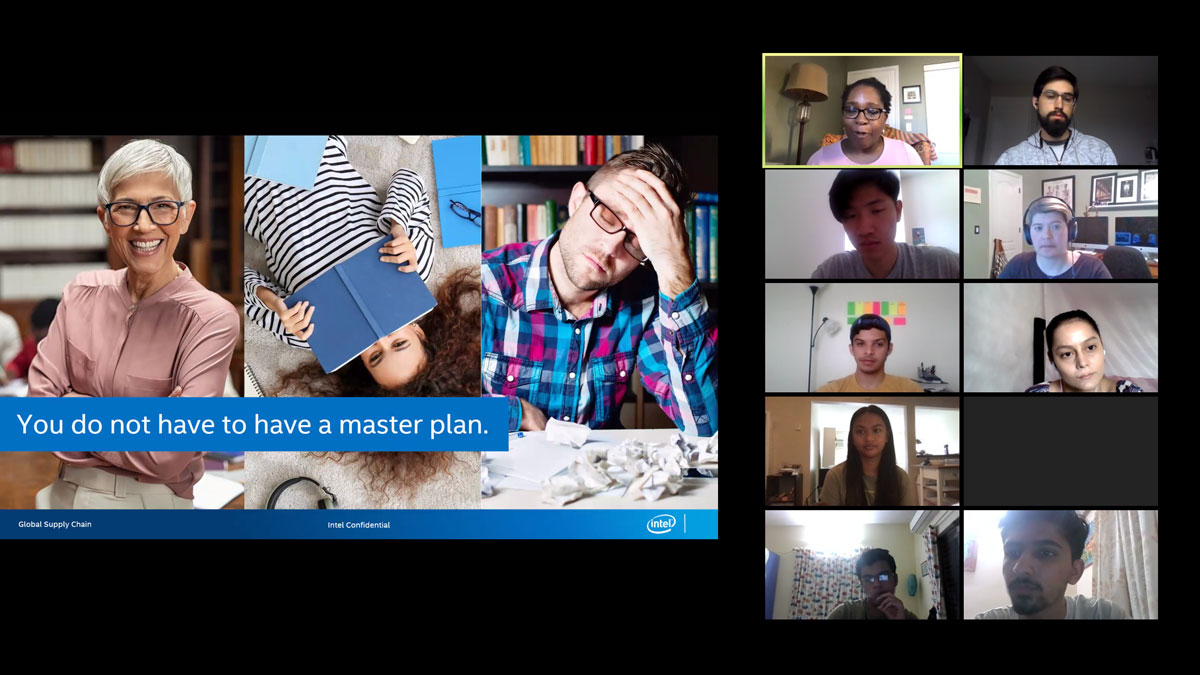
Intel Director of Business and Operations Environment Delia Grenville (top left) and Intel Senior Director and Principal Engineer Kelly Benak (second row, right) discuss their graduate school experience and career journeys with students participating in the ASU Summer Research Internship program.
In addition to doing research and making connections with faculty members and graduate students, the FAMU participants were paired with mentors who are professional engineers and computer scientists. Many of the program mentors attended HBCUs or experienced earning advanced degrees and entering the technology industry as underrepresented minorities and first-generation college students.
“The ASU/FAMU Summer Engineering Program is designed to provide holistic support to students,” Mattisson says. “FAMU students have been paired with Intel Mentors with graduate degrees who can support students during the program and share their experience in the tech industry.”
FAMU student Grant Steans worked with Intel Technology Development Engineer Collins Adetu, who participated in the pilot from Portland, Oregon, and is also a FAMU alumnus. Adetu’s mentorship was a tremendous help to Steans throughout the program.
“We were able to discuss our struggles of working remotely and my personal goals for this summer,” Steans says. “He helped guide me to the right questions I need to ask myself in terms of this program and my continuing career. He also helped me tailor this experience to understand the full benefit for my professional establishment and continued research opportunities.”
Participants also attended weekly Zoom Virtual Engagement sessions hosted by Intel engineers and computer scientists in addition to ASU faculty members. They discussed Intel technology and careers, and shared tips that were key to their success in earning advanced degrees and landing jobs in the tech industry.
The students were particularly inspired by the journey of Marcus Kennedy, an alum of the FAMU and Florida State University Joint College of Engineering, who is also an ASU adjunct professor and general manager of Intel’s Gaming Division. Kennedy, the leadership sponsor for Intel’s FAMU partnership, earned a bachelor’s degree in industrial engineering before getting a master’s degree in business administration and management. Hearing Kennedy speak about his journey of twists and turns, numerous failures and ultimate success inspired students to think differently about their futures.
“During his presentation, [Kennedy] shared his career path and how his decisions always led back to his greatest passion in life,” Steans says. “It taught me that as long as you can remain true to the things you enjoy in life, things will work out — no matter how many rejections and other obstacles may appear in your career path.”
The pilot program has been a positive experience during a summer of uncertainty and upheaval. Students are leaving the eight-week experience with newfound confidence and perspectives in engineering, unique insight from students in the process of earning advanced degrees, and impactful mentors who will continue to meet with them even after the program has ended.
As the summer wraps up, Intel, FAMU and ASU will consider plans for the program’s future and potential for a longer-term partnership.


